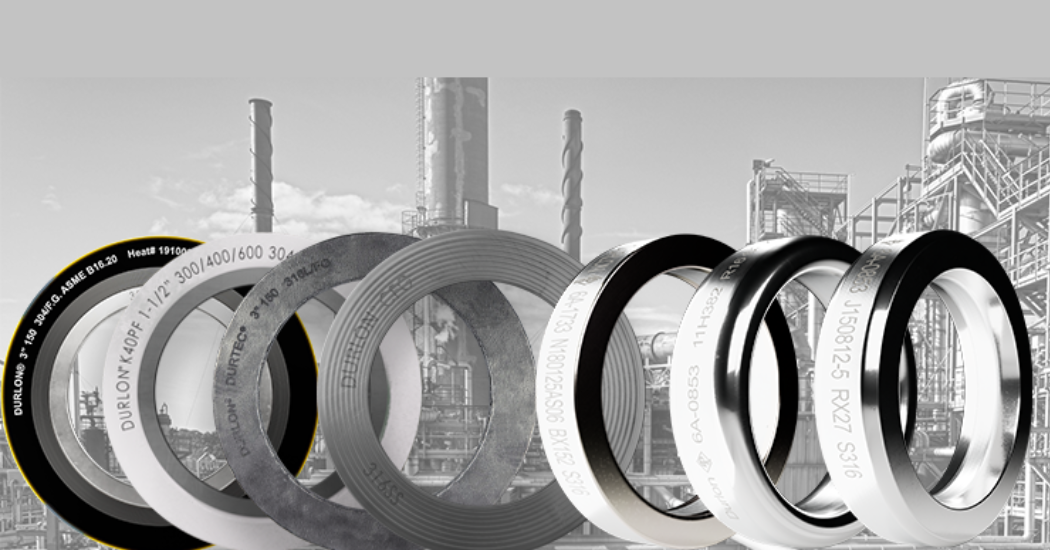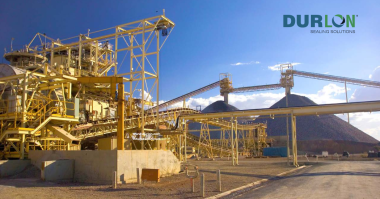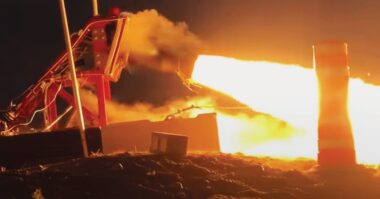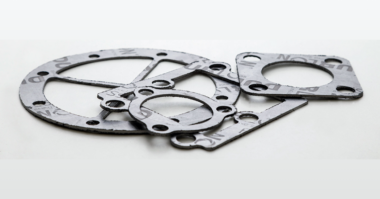- High-temperature
- High pressure
- Exposure to corrosive or hazardous substances
Industrial sealing solutions with metallic and semi-metallic gaskets deliver key benefits, including increased operational efficiency and cost-effectiveness, making them ideal for leak prevention in industrial applications. By preventing leaks, they help reduce maintenance expenses, increase safety, and promote environmental conservation.
Types of Metallic and Semi-Metallic Gaskets and Their Applications
Semi-metallic gaskets, manufactured from a combination of metallic and non-metallic components, are designed to withstand extreme temperatures, pressures, and chemical exposures. Available in standard and custom configurations, these rugged gaskets come in a wide range of materials to suit all types of process applications. Examples include spiral wound gaskets, Kammprofile gaskets, and corrugated flexible graphite gaskets.
Spiral Wound Gaskets (SWG):
Made with an alternating combination of a preformed engineered metal strip and a more compressible filler material, these gaskets create an excellent seal when compressed. The engineered shape of the metal strip acts as a spring under load, providing a resilient seal under varying conditions. Applications include:
- Oil and gas pipelines, valves, and pressure vessels
- Chemical processing in heat exchangers, reactors, and piping systems
- Pulp and paper industry digesters and evaporators
Kammprofile Gaskets:
Also known as grooved metal gaskets, Kammprofile gaskets are highly prized for their durability in demanding applications such as heat exchangers. These gaskets feature a solid metal core with machined serrations, over which a soft filler material, such as flexible graphite, is applied. This design allows Kammprofile gaskets to excel under high temperatures and pressures, handling large bolt loads with ease. They are especially effective in petrochemical applications due to their robustness and adaptability, making them an excellent choice for ensuring tight seals in critical assemblies.
Corrugated Flexible Graphite Gaskets (CFG):
Designed for severe service conditions, CFG gaskets are ideal for the refining, chemical, petrochemical, and pulp and paper industries. They consist of flexible graphite laminated with an adhesive bond on both sides of a corrugated 316 stainless steel core.
Durlon® Durtec® Gaskets:
Engineered to endure high temperatures, pressures, and corrosive chemicals, ensuring blowout resistance and fire safety. They are ideal for various applications like pipeline flanges, valves, pressure vessels, heat exchangers, towers, and tanks. Featuring a specially engineered machined metal core bonded with flexible graphite layers on both sides, Durtec® gaskets offer unparalleled mechanical support, with their virtually un-crushable metal core.
Ring Joint Gaskets (RTJ):
Metallic gaskets, or Ring Type Joint (RTJ) Gaskets, are forged or cast from solid metal and designed for high-pressure and high-temperature services. These metallic gaskets seal by creating a very high unit load, metal-to-metal line contact, with special mating flanges. The metals are typically chosen so that the gasket is softer than the flange material to prevent damage to the flanges and allow plastic flow of the gasket into the flange faces.
Key Considerations When Selecting Metallic or Semi-Metallic Gaskets for Severe Temperatures and Pressures
When choosing metallic or semi-metallic gaskets for high-pressure and high-temperature applications, consider the following:
- Start with the pressure rating to ensure the gasket material can handle the maximum expected pressure.
- Choose materials that perform well within the expected temperature range of your application, including any spikes or fluctuations.
- Select gasket materials that resist corrosion, degradation, and chemical attack from the sealed fluids or gases. Consider the flange material and surface finish as well.
- Creep relaxation resistance is crucial in high-pressure applications. Choose materials that withstand constant stress without deforming or losing sealing power over time.
- If your application involves cyclic loading, fatigue resistance is vital.
- In case of a sudden pressure surge or system failure, look for materials with good blow-out resistance to prevent catastrophic failures and enhance safety.
- Ensure the material complies with relevant industry standards and regulations, such as ASME, API, ISO, fire safety, or food safety standards.
- Lastly, consider the cost and availability of the gasket material, as well as any fabrication or installation costs. Balance performance requirements with budgetary constraints and lead times.
Types of Materials Used in Metallic and Semi-Metallic Gaskets
Each material used in these gaskets has unique properties making it suitable for specific applications:
- Stainless Steel: Known for its corrosion resistance and ability to withstand high temperatures. Ideal for chemical processing, food and beverage, and marine applications.
- Inconel: Known for high-temperature strength and resistance to corrosion and oxidation, prevalent in aerospace and gas turbine engines.
- Monel: Excels in corrosive environments like marine and acidic settings, offering impressive mechanical strength for high-pressure applications.
- Hastelloy: Resists a wide range of corrosive chemicals, making it a top choice for chemical processing and petrochemical industries.
- Titanium: Offers an impressive strength-to-weight ratio and corrosion resistance, especially in seawater, making it ideal for aerospace and marine applications.
View Durlon’s complete line of Metallic and Semi-Metallic gaskets or contact them here today!




